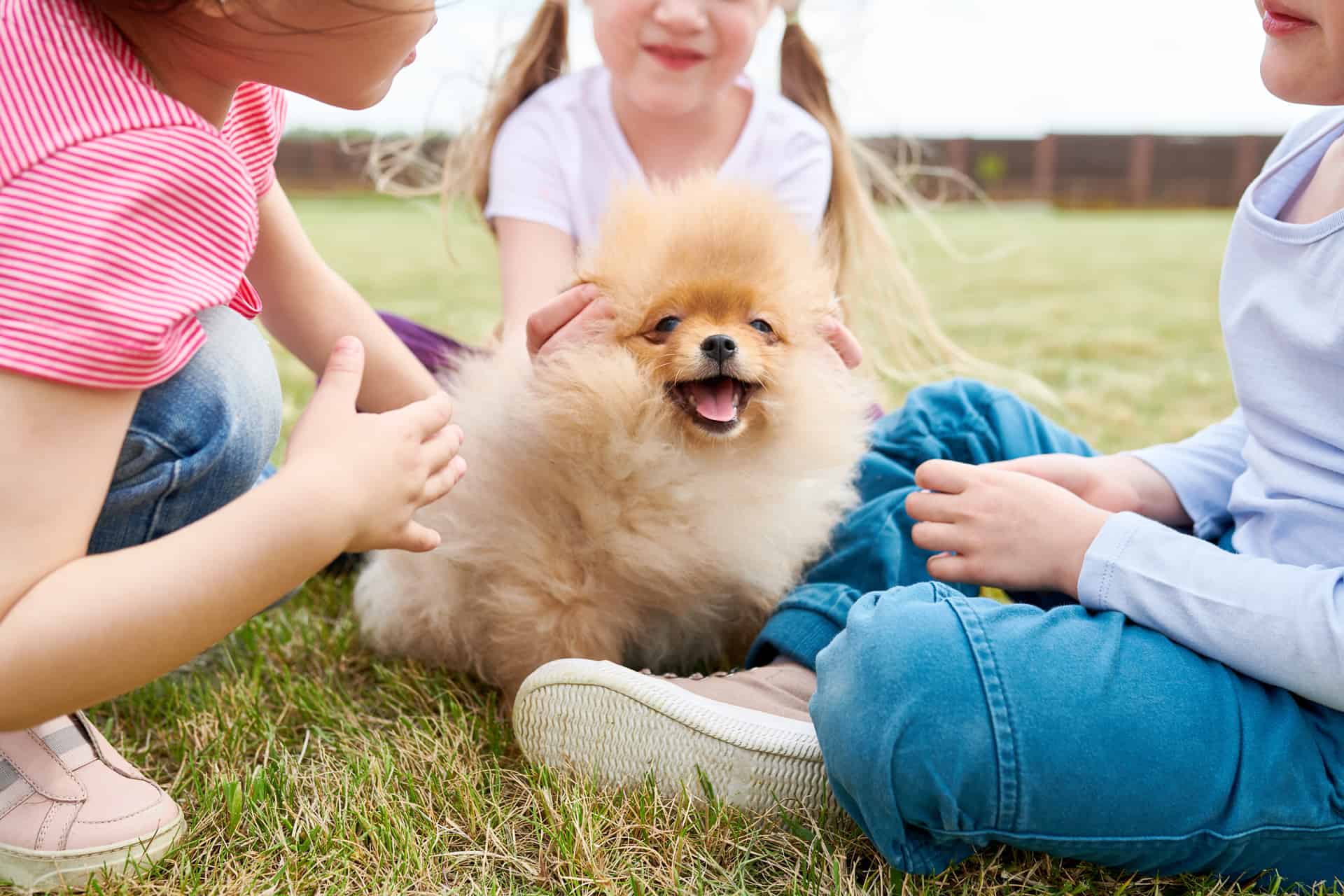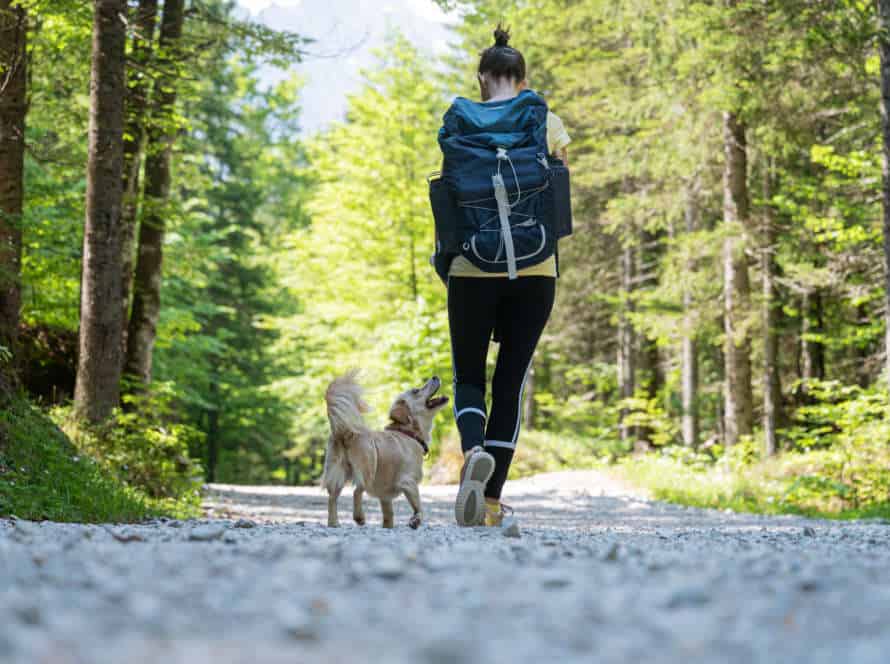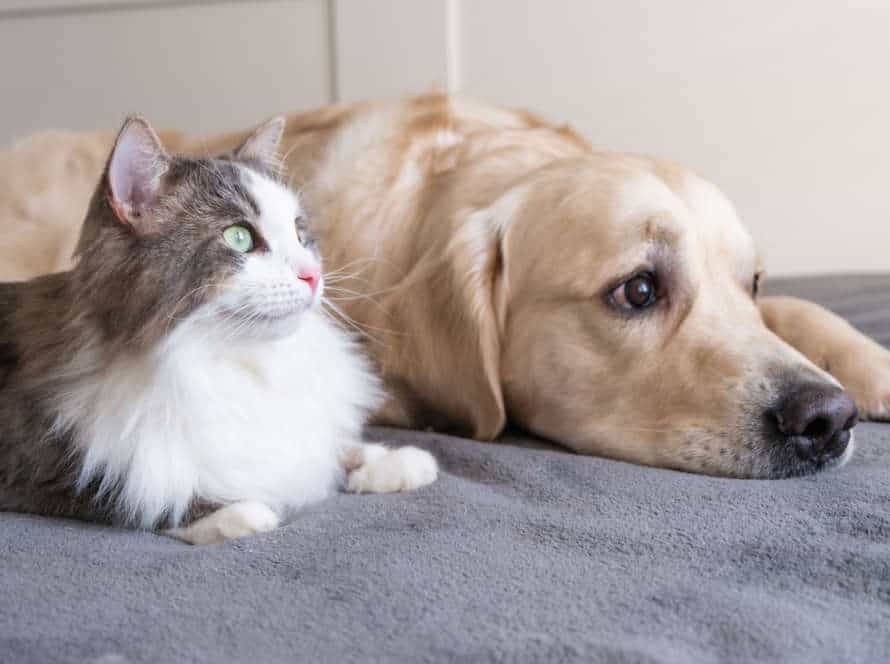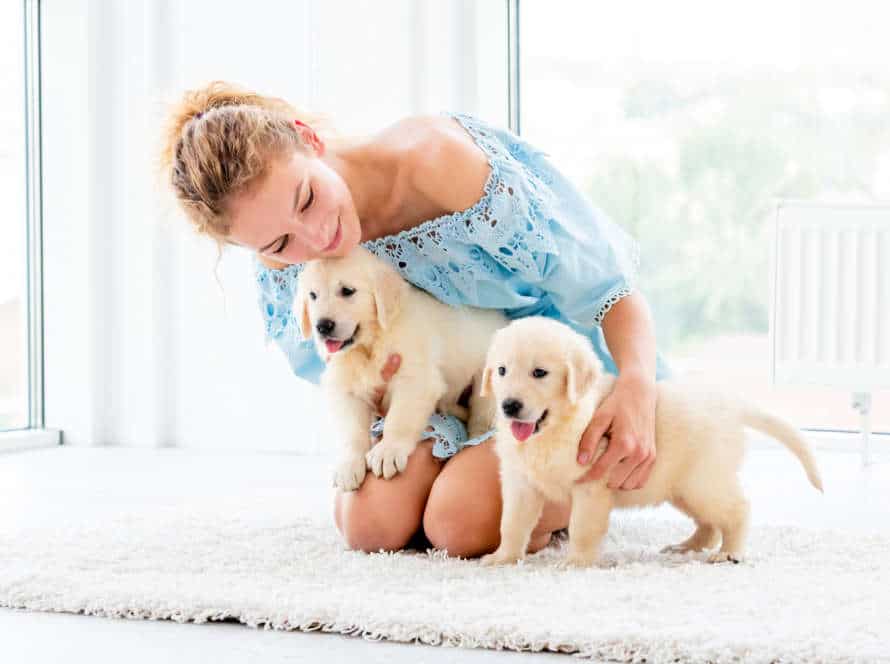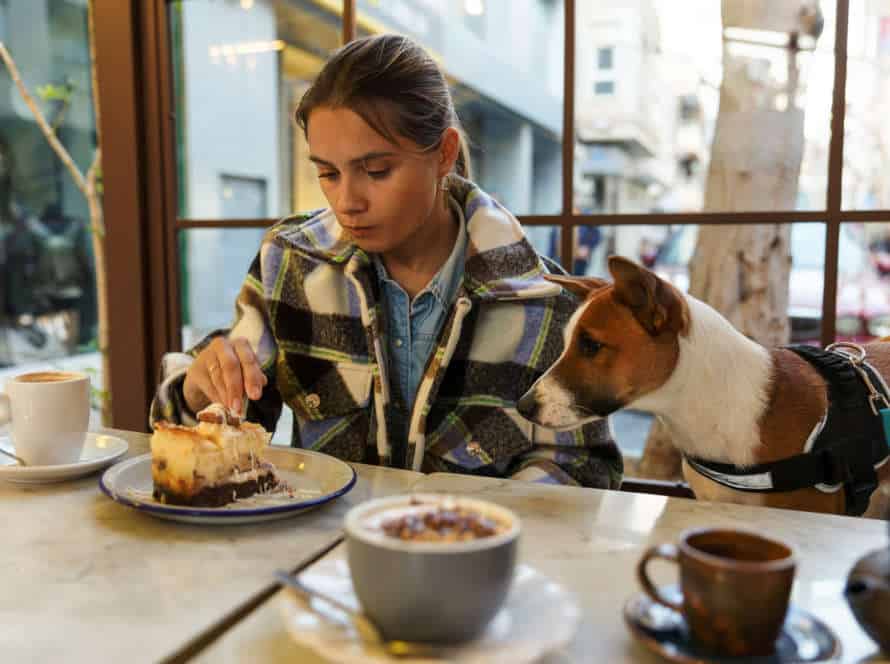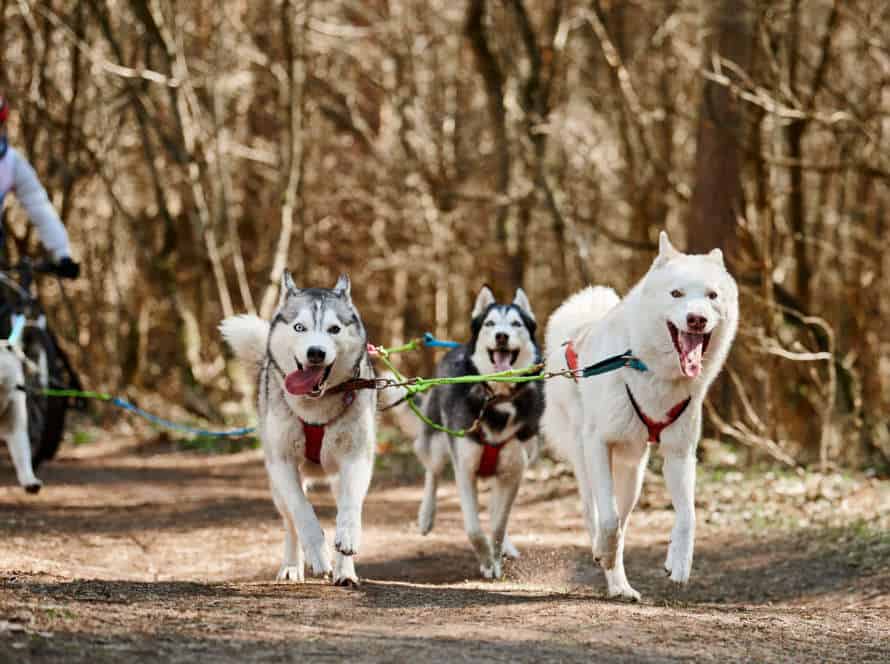Encouraging Polite Greetings: Socializing Outgoing Puppies
It is essential to encourage polite greetings in outgoing puppies. Here are tips to help them learn:
- Start with basic obedience training for verbal cues like “sit” and “stay”.
- Encourage calmness before introducing to new people or animals.
- Teach them to greet with all four feet on the ground and not to jump or nip.
- Reward them with treats and positive reinforcement when they do it politely.
- Identify triggers that make them anxious or overexcited and minimize exposure to them.
- Practice socialization every day to build their confidence and help them form polite habits.
Why Is Polite Greeting Important for Outgoing Puppies?
A lively pup needs to learn how to greet people politely. This is so they can build healthy relationships with humans and other animals. Teaching them good manners helps them be more confident and relaxed. Plus, more social too!
Here, we’ll talk about why polite greeting is vital for active puppies and how to promote it.
The benefits of polite greeting
Polite greeting is essential when socializing young pups. It’s not just good etiquette, it can bring huge advantages to their behavior and overall health. Let’s look at the benefits of polite greeting:
- Promotes proper socialization: A polite greeting sets a good tone for a pleasant interaction, making it more likely that the puppy will get along with other dogs and people.
- Reduces fear and stress: Teaching puppies how to greet politely makes them feel more secure and less nervous around unfamiliar people and dogs.
- Stops aggression: If a pup greets aggressively or madly, it can cause negative reactions from other dogs, which could lead to fights and other bad interactions. Polite greeting helps avoid this.
By encouraging polite greeting in outgoing puppies, you can help them develop good social skills and grow up to be happy, confident dogs.
The risks associated with poor socialization
Poor pup socialization can cause many issues, such as aggression, anxiety, and other disorders. Teach polite greetings early on to avoid this. Use a treat-based reward system when they show positive social behavior, like sitting politely and not jumping on people. Polite greetings are needed, not just for pup well-being, but for the safety of those around. Inadequate socialization could lead to reactive, defensive, or aggressive behaviors that are new to them.
Take the time to socialize your pup, and you’ll have a happy and healthy pup that’s welcome anywhere.
The role of socialization for outgoing puppies
Socialization is essential for shaping the behavior of outgoing puppies. Teaching polite greetings helps them become confident and enjoyable. Here are some tips:
- Expose puppies to different people, dogs, and environments from a young age.
- Reward calm and friendly behavior with attention or treats.
- Avoid reinforcing jumping or other inappropriate behavior.
- Teach basic obedience commands like “sit” and “stay” to help control their impulses.
Pro tip: Early socialization and training are key for your puppy’s social development and happiness.
Training Methods for Encouraging Polite Greetings
Train your pup to say “hello” politely! It’s key for socializing and teaching good behavior. No more jumping up on people or other animals. There are ways to help your pup learn polite greetings. Let us explore some successful training techniques.
Desensitization to Stimuli
Desensitization training is a useful way to get outgoing puppies to be courteous when meeting others, and to react less to different triggers. This goal is to make the pup’s response to certain things milder, so they don’t act out.
To start desensitization training:
- Expose the puppy to new people, animals, and noises in a managed setting.
- As they get used to a particular trigger, step up the intensity, time, and frequency of exposure.
- Reward the pup for the right behavior and reduce the rewards as they become calmer.
- Eventually, they will become used to these triggers, and their reactions will be more composed.
- Be patient and consistent, and never put them in a situation they don’t like.
Positive Reinforcement Training for Polite Greeting
Training with positive reinforcement is great for teaching puppies polite greetings. Try these methods:
- Reward good behavior. Whenever your pup greets someone in a respectful way, give treats, praise or petting. This will show them to do it again!
- Ignore bad behavior. If your pup jumps up or acts badly, turn away and ignore until they are calm. Don’t give any attention until they are polite.
- Teach an alternative. Train your pup to sit, shake hands or do something else instead of jumping or barking when meeting people. This will help them learn the proper behavior.
With training and positive reinforcement, your outgoing pup will learn to greet nicely and make a good impression!
Creating Controlled Environments for Polite Greeting
Train your outgoing pup to meet people properly! Here’s how:
- Teach the Sit Command – get them used to sitting when they say hi. This stops them from jumping up.
- Reward Good Behavior – tell them they’re doing great and give them treats when they do well.
- Controlled Socialization – have them meet people slowly, starting with those they know. Then, increase the number of new people over time.
- Consistency – make sure everyone follows the same rules and they’ll learn faster.
These steps will help you get your pup to greet people politely! Pro Tip: Start training early and use positive reinforcement.
Strategies for Socializing Outgoing Puppies
Socializing pups is key for their growth. It can make them more confident and well-rounded adults. Outgoing puppies need extra attention with socializing. Encouraging polite greetings from others is one way to teach them proper etiquette and how to interact. Here are some more strategies for successful pup socializing:
Socialization with Other Puppies
Having an outgoing pup can be awesome! Encouraging politeness is key. Here are 3 strategies to help:
- Show pup different people and dogs. Introduce pup to different sizes, breeds, and energy levels. Plus, show them different types of people, including kids, adults, men and women.
- Reward pup for good behavior. Give treats or praise when pup interacts nicely with other dogs or people.
- Teach pup basic commands. Teach them “sit,” “stay,” and “come.” Practice in different settings, like crowded or noisy areas, to boost their responsiveness.
Practice with Familiar and Unfamiliar Humans
To help your pup socialize with humans, it’s important to teach them how to greet politely. Here are some tips:
- Practice with people they know. Have the pup sit and stay first. Reward with treats and praise.
- Introduce them to unfamiliar people slowly – like in a park. Let the unknown person approach calmly, and offer a treat for calm behavior.
- Encourage calmness when greeting. Reward them for good behavior. Be consistent in training.
Remember: Socializing your pup early can help prevent future issues and help them grow into a well-adjusted adult dog.
Real-World Encounters for Socialization
Socializing is essential for a pup that’s outgoing. Real-world experiences give pups chances to learn new behaviors and be self-assured when talking to other people and dogs.
To socialize an outgoing pup, polite greetings are great! Here are some tips:
- Have your pup learn the “sit” command – prevents them from jumping.
- Reward pup for calm behavior when interacting.
- Start with short interactions and increase the time and difficulty gradually.
- Show pup to various people and dogs of different ages, sizes and breeds.
Common Mistakes to Avoid in Encouraging Polite Greetings
Socializing puppies? Key! Teaching polite greetings? Super important. Might seem simple, but mistakes can be made. To ensure puppies learn proper etiquette, pet parents need to note down common mistakes, and avoid them. That way, puppies can be socialized in a healthy way.
Physical Corrections
When teaching puppies polite greetings, it’s key to avoid errors. Physical corrections are a no-no as they can cause fear or aggression. Here are other solutions:
- Train your pup to sit and stay before saying hello.
- Give treats, toys, or other positive rewards when your pup is calm and polite while meeting new people.
- Let your pup be exposed to various settings and people, to make them more relaxed and confident.
- Be consistent and reward good behavior, so your pup knows what is expected of them in social situations.
Encouraging Fearful Behavior
The title appears to be confusing as it is contrary in nature. To make clear, “Encouraging Fearful Behavior” is not connected to “Encouraging Polite Greetings”. So, the latter part of the heading should be taken into account when crafting the response.
Training outgoing puppies in polite greetings is essential for their social advancement. Here are some common missteps to avoid when teaching them polite greetings:
- Don’t force them to greet strangers. Let them observe from a distance and go up to people on their own.
- Training is necessary for motivating polite greetings. Use positive reinforcement methods and slowly raise their exposure to social settings.
- Don’t permit jumping behavior. Train your puppy to keep all four paws on the ground when they greet people.
Remember, socializing your outgoing puppy needs patience and consistency. With the right training and approach, your puppy can be a well-mannered social companion.
Practicing Poor Socialization Techniques
Incorrect socialization can cause dogs to act badly when meeting others. Here are some common mistakes you should avoid when teaching your pup polite greetings:
- Jumping: Don’t let your puppy jump on you or others. If they do, they might jump on strangers for attention.
- Sniffing: Sniffing is natural. Don’t scold them for it, as it helps them get social cues.
- Ignoring: Don’t ignore bad behavior when they meet someone new, as this sends confusing signals and leads to negative habits.
- Rushing: Take your time with the process. Let your pup get used to new people and experiences.
Always remember to give clear signals. Tip: Reward good behavior with treats, positive reinforcement, and gentle correction.
Conclusion and Encouragement
Socializing pups is key for their growth. Owners can encourage good manners and politeness to make positive behaviors that will stay with their puppies. Teaching new things to puppies can be hard. But, with the correct tactics and mindset, it is possible. So, let’s look at how to be supportive, reliable and positive when training puppies good greetings.
Recap of Strategies for Polite Greeting
To socialize your pup, politeness is a must. Here are some tips to help your pup be polite:
- Before greeting people, train your doggy to sit and stay.
- Use treats and praise to motivate calm behaviour when meeting new people.
- Utilize a leash to control your pup’s movements and avoid jumping.
- Teach your pup the “leave it” command to stop jumping and nipping.
- Keep up with socializing your pup to help them be confident in new situations.
When you use these strategies, your pup will become a great and well-behaved furry friend. Remember: Consistency is key while training your pup. Every time you interact with them, reinforce good manners and polite greetings.
Importance of Consistent Socialization
It’s important for puppies to understand how to interact with people, other dogs, and the world around them. Helping an outgoing pup with socialization is key to giving them a happy, adjusted life.
To encourage good social behavior, use treats when they greet someone politely. Anticipate when they may get too excited and stop it before it becomes a problem.
Practice with family, friends, and strangers. Give your pup time to adjust to new situations. Socialization takes consistency and patience.
With effort, your outgoing pup will become a friendly, well-behaved adult dog.
Encouragement to Practice Polite Greeting with Outgoing Puppies
Teaching polite greetings to outgoing puppies is key for socializing them. To help them learn good manners:
- Stand up tall, yet don’t stare.
- Allow the pup to come near but keep your space.
- Don’t pet them when they jump or try to climb on you. Wait until they’re calm and all four paws on the ground before rewarding with attention and petting.
Socialization is crucial for a confident pup. Encouraging these pleasant greetings makes it a positive experience for everyone involved. Socialization can be an enjoyable time for pup and owner!
Frequently Asked Questions
1. How can I encourage my outgoing puppy to greet people politely?
It’s important to start training your puppy from an early age. When your puppy greets someone, teach them to sit and wait until the person initiates physical contact. Reward your puppy when they do this correctly.
2. What is the best way to socialize my outgoing puppy?
Expose your puppy to different people, sounds, and experiences. Gradually increase the intensity of the socialization as your puppy becomes more comfortable. Take your puppy to puppy play dates and training classes.
3. What are some common mistakes people make when socializing their puppies?
Allowing their puppies to jump on people, punishing their puppies for inappropriate behavior, and avoiding exposure to new experiences are common mistakes. Remember to be patient and consistent with your training.
4. Is it important to socialize my puppy with other dogs?
Yes, socializing your puppy with other dogs is important for their development. However, make sure the other dogs are friendly and vaccinated. Avoid dog parks until your puppy is fully vaccinated.
5. How can I prevent my puppy from becoming fearful or aggressive towards strangers?
Proper socialization can prevent fear and aggression towards strangers. Make sure your puppy has positive experiences with people of different ages, genders, and ethnicities.
6. Can I train an older dog to be polite and outgoing?
Yes, older dogs can still be trained. It may take more time and patience, but it’s never too late to train your dog. Seek the help of a professional trainer if needed.

